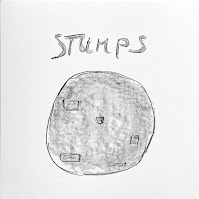Here is the good news : there are no rules for listening to music.
Here is how I do it. And I may be the most irrational of music reviewers.
Play the music first several times without listening to it. I mean without actively listening to it. Absorb it unconsciously, concentrate on other things, think of other things, do other things. The music will seep into you.
Don't treat music like an artifact. Treat it like nature. Something that is just there. Surrounding you. Don't even think about how it is made, how it came to be, how it evolved. Don't look at its parts or elements or structures. That's interesting stuff for biologists and geologists and physicists and possibly chemists too. Don't objectivise art. Let it overwhelm you. Let it surround you. Let it blow you away. Let it drench you.
Equally like nature, don't even think too much about who made the music. You will be deceived for sure, and it closes your mind to other options. It's about the music, not about the musicians, and certainly not about their reputation - before or after.
If the music is any good, it will grab your attention. If it is really bad too. If it is neither good nor bad, you will not notice it. Like you will not notice nature most of the time. It will leave you indifferent. If it is really bad, like an icey hailstorm or an erupting volcano, you will run away. If it is really good, either spectacular like high mountains cascades, or sweet like a spring breeze, you will want to be exposed to it again, and again.
That's when you can start listening to it for real. Now you listen to it attentively, but again without too much rationalising. Any conscious effort to listen will detract you from the totality of it. Concentrate on the music as a whole. Let it resonate within you. Stop thinking about how the musicians do what they do. Don't start to even think what key they're playing in, or which rhythm. Be the music. Switch off your thinking brain. Put on your experiencing self. Undergo the experience. Let your self be carried away on the journey the artists prepared. Be part of it.
Never think the following : who made this music? what is coming next? how did they do that? should I like this? is this my genre? does it relate to anything I know? never think : what will others think of me?
Never think. Be all emotion.
Be the music.
© stef

















9 comments:
Very nicely put, it has to work subconsciously, too much analysis takes the fun out .
Very intimate...thanks Steff ;-)
Don't you think that your recipe for music listening favors the type of music with catchy frazes and melodic repetitions?
I must confess that my listening habits are very much like yours, so above statement is more food for thought than accusation of wrongfulness.
Be the witness.
while i certainly agree that the appeal of music might diminish when it's being over-analysed, your approach is somewhat too irrational or ethereal for me. i have approached music in similar ways, but mainly when we're talking about free improv and some free jazz. and even then i'm trying to ask additional questions (what was the artist trying to convey, aim for / on which tradition is he building / what are the underlying ideas he wants to confront the listener with, etc), because it seems to me that a purely emotional response might be selling the musician short a bit, especially if they're explicitly working within a certain idiom, trying to start up a conversation between tactics or purposely workin within certain formal constraints (self-imposed or not) or ideas. and that's what i know a lot of musicians are trying to do, so they're not only aiming for the sensory level only. an understanding of the music that goes beyond that offers an even richer experience sometimes. to me, at least
freely improvised music, music of the moment, is often ideally suited to react to in an instinctive, irrational way, but when a musician has been investing time and work in certain constructions/compositions (whether written out in detail or with looser ties and structures...), i think he/she would appreciate that being acknowledged by a listener. otherwise so much would/could get lost. no?
just trying here... maybe we need some musicians' perspectives? :)
and also: i also value the EFFECT the music can have on a person (sometimes it is great to just be overwhelmed by the sheer beauty and depth and poetyr of music), of course, but i'm usually too curious to leave it at that and wonder why it DID have that effect. or something to that extent...
That's what I mean. The how the musicians do it is less relevant for the listener as the effect it has. Analysing the how may help to fully appreciate what is going on, but it will never replace the experience of the music itself.
stef
I'm studying classical music and jazz and I still listen to music like you. I just feel the experience, the emotion, the feeling.
This in no way contributes meaningfully to the conversation, but I have observed that my dog will sit on the couch and gaze at the stereo when I put on Ornette Coleman or something similar. I find it fascinating.
Post a Comment